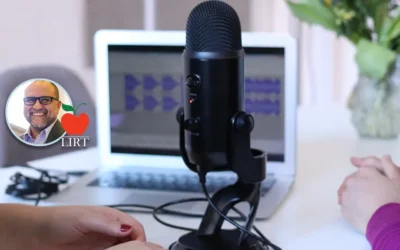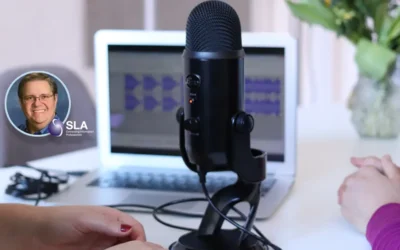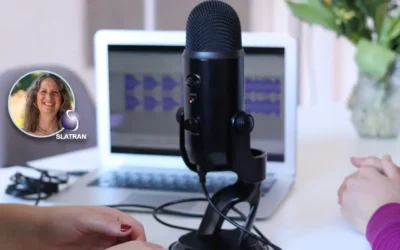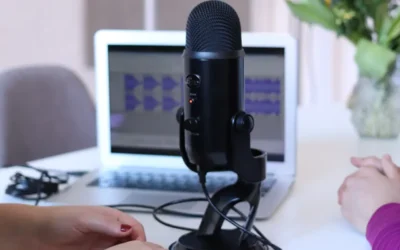Resources for Personal Education and Lifelong Learning
Miriam Kahn, MLS, PhD
In a perfect world, we have the time and energy to learn anything we are interested in. We can satisfy our internal urge to explore new worlds and delve into history, to indulge in a new hobby or master a skill.
Even while living in a time of telework, work from home, or exploring new work options, we can indulge our need for personal education and lifelong learning. Rather than bemoaning the doldrums of working and living in the same four walls every day, harness your drive and curiosity to learn something new for yourself.
As you embark on your self-education plan, it’s okay to start with someone else’s outline or map as a guide. Start with something that’s pre-packaged, follow their trail, and remind yourself “it is okay to branch out and explore whatever strikes your fancy.” After a while, you won’t need someone else to show you the way. You can create your own lifelong learning experience.
Brainstorming for topics
If you are like me, my e-mail overflows every day with articles from magazines, podcasts to listen to, and offers to try a subscription service or purchase a book. These offers provide excellent entry into lifelong learning.
Or you can establish your own lifelong learning self-enrichment plan. Here are some ways to brainstorm for topics to explore and learn. Remember, you can always change course.
- Read a book review blog, Talk to your friends and ask what they are reading.
- Watch a movie and dive into the subject, find a toehold or crack through which to learn.
- Explore history through historical fiction and biography and expand out from there. Maybe there’s a book on science that intrigues you.
- Pick up books and articles by author and creators of movies, series, and documentaries you enjoyed. Follow their breadcrumbs and see where they take you.
- Intrigued by issues in the news? Find a book or extensive article on the topic and explore the sources referenced.
There are endless ways to find topics to learn about. Keep your eyes and ears open for opportunities to embrace lifelong learning.
- For example, I was touring a quilt exhibit that featured a bed covering made of Linsey-Woolsey made between 1790 and 1810. Curious, I looked up the fiber combination online (Linsey-Woolsey is a mix of linen and wool.) Was that when America was weaving its own cloth or were they dependent upon Great Britain’s huge textile industry? Those questions led to a month of reading about weaving, spinning fibers, and US/British trade.
Finding Resources
Now that you’ve settled on a topic to learn or a skill to master, identify resources to sift through.
If you’re of a certain vintage, note that many colleges and universities allow seniors (those over 60) to take courses for free. Recreation centers and Y’s offer weight training, exercise classes, and yoga through “Silver Sneakers” and general memberships. These same recreation centers may host meetings on hobbies, skills, and language acquisition. While we are self-isolating, these organizations offer online learning opportunities.
Publishers have learning packages on hundreds of topics ranging from history and science to business management and self-improvement, all of which can be streamed, downloaded, or purchased in CD and DVD formats. Publishers offer daily or weekly podcasts and videos on a variety of subjects.
Academic and non-profit institutions are recording lectures and conferences in lieu of in-person meetings. Set aside an hour to watch and listen.
Here is a small sampling of places to obtain lifelong learning and self-enrichment.
- The Great Courses https://www.thegreatcourses.com/. Great Courses has been around for several decades. Their courses are multi-unit and cover the entire subject from medicine and health topics, history, and literature to astronomy, business management, and self-care. Many libraries have Great Courses in their collections on CD and DVD and as digital downloads.
- Road Scholar is educational travel for adults https://www.roadscholar.org/. Formerly known as Elderhostel, Road Scholar offers a combination of learning and hiking or touring in the US and throughout the world. Today, Road Scholar utilizes the power of the web and streams free online lectures, both live and recorded.
- Coursera https://www.coursera.org/ and edX https://www.edx.org/ are two university-based organizations offering courses for credit and certification (for a fee) or for your edification. They offer a full range of academic and professional topics.
- Lifelong learning Institutes under the Bernard Osher Foundation http://www.osherfoundation.org/index.php?olli. Continuing education is essential for older adults, particularly those who are retired. There are lectures, courses, and book discussion groups on every imaginable topic.
Of course, there are plenty of online resources to mine such as TED Talks https://www.ted.com/ and skills to master on video platforms like YouTube http://www.youtube.com or podcasts. Any number of organizations and individuals make their programs available through subscriptions.
After you pick a topic, set an initial time limit of a month. Explore the topic, read widely, and follow tangents when you are curious and expand or shift topic according to your passions and inclination.
Motivation and sustainability
Self-enrichment and lifelong learning are vastly different from academic coursework. As we’ve discussed, a plan, available resources, and scheduled blocks of time are keys for success.
Follow your own self-enrichment course and map your lifelong learning route. Lifelong learning can be as rigid as following your GPS to a destination or as flexible as taking side roads and detours to exotic places and topics you find on a paper map. Paper maps provide a picture of the world around you, the vast ocean of information, and opens up a multitude of choices and tangents to explore along the way. Remember you can always follow the interstate to get where you are going quickly or you can travel smaller byways and blue highways in search of lesser known sights.
As information professionals we have an advantage over other lifelong learners. We can locate information resources easily using the library’s online reference resources including fee-based resources, dictionaries, subject specific encyclopedia, and databases. Don’t be afraid to look up a person, place, or event on Wikipedia, you never know what you’ll learn there. Of course, internet search engines and websites point to images, pictures, how-to videos, and even academic resources.
Journaling and self-reflection
Downtime isn’t lost time. It is important to allow yourself plenty of time to reflect on new ideas and let information percolate into all the rest of what you know. People use a variety of tools to help them process new information including journaling, exercise, and even baking or gardening.
There are lots of ways to help yourself absorb what you are learning and experiencing. Keep notes on what you’ve processed. You’ll be amazed at what you learn and what you’ve discovered, and what you want to learn next.
- Let new information and skills process and percolate in the background.
- Write or journal in the time you’ve set aside to think about what you learned, what you already know, and where your self-enrichment is taking you.
- Talk to yourself about what you are learning. Use audio or video if you don’t like to journal.
- Do something active. Let your subconscious ruminate. Physical and kinesthetic activity helps your subconscious work on new ideas.
Processing new information should be easy and stress-free. Let what you are learning sift through what you already know. Don’t worry if it takes a while to make new connections.
Summing it up
Take control of your personal self-enrichment. You can follow someone else’s curriculum or your own intellectual interests. Map out your initial objectives and give yourself permission to follow tangents.
Leave yourself time to explore facts and fictions.
If it feels like work, you are doing it wrong. Set aside time to think, to relax, and to absorb new knowledge. It’s part of self-care. This isn’t school. Self-enrichment is supposed to be enjoyable.
Miriam Kahn, MLS, PhD
Miriam B. Kahn, MLS, PhD provides education and consulting for libraries, archives, corporations, and individuals. See Miriam’s pieces for Lucidea covering library technology and skills and strategies for special librarians. Refresh your knowledge of Lucidea’s flagship ILS, SydneyEnterprise, here.
Similar Posts
Interview with Victor Baeza about ALA’s Library Instruction Round Table
Interview with Victor Baeza, President of LIRT, about how it benefits from and supports special librarians whose roles involve teaching or training.
Interview with Eugene Giudice, SLA Treasurer
Interview with SLA’s Treasurer about the future of the special library profession and how the Special Libraries Association can benefit librarians
Interview with Cara Marcus on Transportation Librarianship and SLA
Interview with Cara Marcus, the president of the Special Libraries Association (SLA) transportation community about transportation libraries and SLA
Interview with Christian Nappo on the National Librarians of Medicine
Interview with the author of a reference-ready book on the twenty-seven men and women who headed the National Library of Medicine.
Hosting service
Enjoy all of the benefits of your Lucidea solution with secure, reliable, stress free hosting
Programs & incentives
No matter your size or budget, we’ve got you covered, today and tomorrow




Leave a Comment
Comments are reviewed and must adhere to our comments policy.
0 Comments